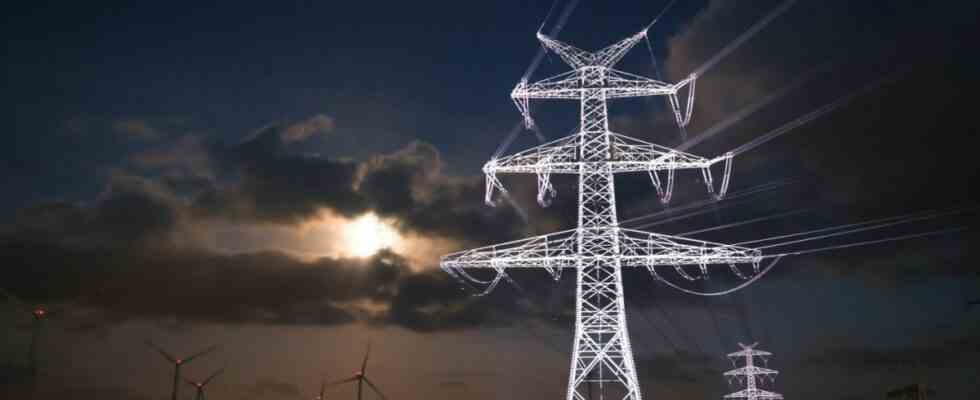Germany’s power grid in public hands? Robert Habeck (Greens) would not mind. Where there are natural monopolies, because there is only one power grid and not several, the “public sector is in a situation of responsibility,” said the Economics Minister on Wednesday. And there is also a specific case: the Tennet network in Germany. The Bund was the first to report Reuters, check a majority stake in the former Eon network. According to Habeck, there are initial talks. However, he is not allowed to comment on them, for the time being it is about analyzing the financial situation of the German business. “However, I make no secret of it,” the minister adds somewhat convolutedly, “that if there is a possibility for the public sector to play its part in the creation of a public infrastructure, then it is politically attractive to explore this path.” That means he would be there. The total price is estimated at five billion euros.
Tennet’s German network used to belong to the Eon group
Tennet is one of four major transmission system operators in Germany that operate and build the so-called electricity highways. In addition to Tennet, these are 50 Hertz, Amprion and Transnet BW. Ultimately, these companies are also the ones who ensure the stability of the network. The expansion of the power grid from north to south also depends on them. Habeck now points out that the state-owned KfW bank already holds shares in the east German network operator 50 Hertz – in 2018 the federal government fended off the entry of a Chinese state-owned company – and that Transnet BW is looking for shareholders in southwest Germany. Tennet’s power grid originally belonged to the Eon group and was sold to the Dutch in 2010.
But with the net they also bought a massive investment needs. In the meantime, they have to plug more into German power lines than into Dutch ones. This pays off in the long run, but makes a German state participation appear interesting from the point of view of the parent company. The federal government, in turn, has some practice in entering the state. Both Commerzbank and Lufthansa were rescued from the crisis in this way, and the nationalization of the energy company Unipers, which ran into existential problems after the outbreak of the Ukraine war and the lack of gas deliveries from Russia, is currently underway. Uniper had to buy gas at significantly higher prices in order to be able to meet its delivery obligations, especially to municipal utilities and companies in Germany. The federal takeover should prevent a collapse from becoming a domino effect for other parts of the economy. On December 19, the Uniper shareholders are to approve this at an extraordinary general meeting.
Uniper boss Klaus-Dieter Maubach announced on Wednesday that they now want to recover some of Gazprom’s losses. Uniper has applied for arbitration proceedings against Gazprom before an international arbitral tribunal. Uniper will demand reimbursement of the “considerable financial damage,” said Maubach. However, the chances of success are considered slim.

